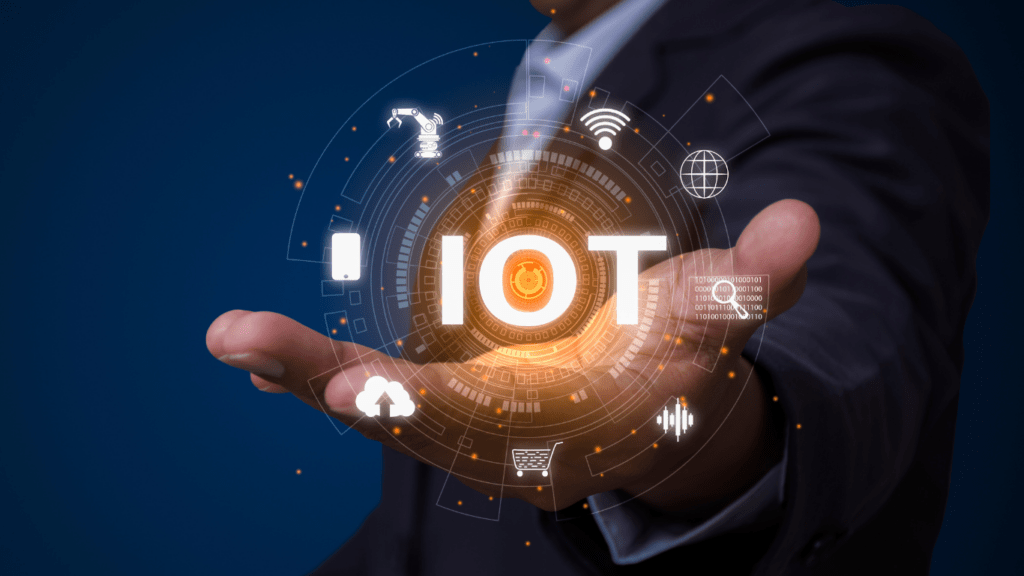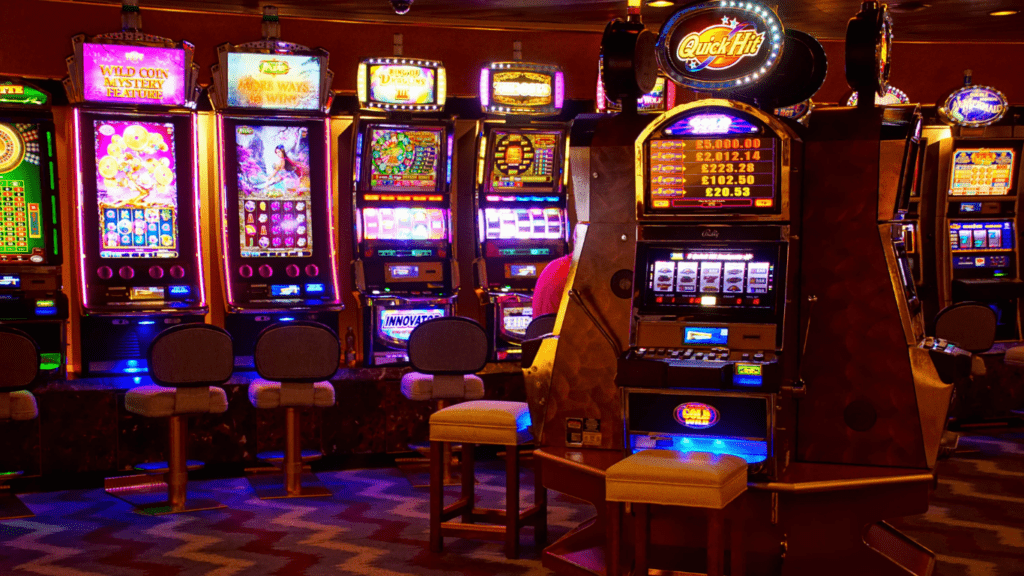The Role Of IoT In Modern Casinos
IoT enhances operational efficiency and optimizes the gaming environment in modern casinos. Connected devices, such as RFID-enabled chips and smart slot machines, provide real-time data on player behaviors and game usage. This data helps casino operators tailor services, manage resources, and analyze trends.
IoT-powered wearables improve player experience by offering personalized features. For example, smart wristbands track loyalty points, facilitate cashless payments, and provide instant access to promotions. These devices enable seamless interactions, reducing friction and enhancing convenience for guests.
Advanced IoT sensors bolster security and fraud detection across gaming floors. Surveillance systems integrated with biometric devices identify suspicious activities more effectively. For instance, IoT-enabled cameras combined with facial recognition software monitor high-stakes tables for potential cheating or identity fraud.
IoT streamlines maintenance by predicting equipment failures. Smart systems in slot machines and HVAC units alert staff before issues occur, minimizing downtime and ensuring optimal performance. Proactive management keeps casino operations smooth and uninterrupted.
IoT applications extend to smart building systems, improving energy efficiency. AI-driven lighting and climate control based on real-time occupancy data reduce energy consumption without affecting guest comfort. Sustainable IoT solutions provide operational cost savings and eco-friendly benefits for casinos.
Enhancing Player Experience Through IoT
IoT is reshaping how players interact with casino environments. By integrating smart devices, casinos deliver tailored experiences and unparalleled convenience to their guests.
Personalized Gaming Experiences
IoT devices bring personalized gaming to a new level. Smart gaming tables and slot machines adjust themes, difficulty levels, and betting amounts based on individual preferences tracked through player profiles. Wearable devices, such as IoT-enabled wristbands or smartwatches, monitor behavior and provide suggestions for games that align with a player’s interests. RFID-enabled loyalty cards let casinos offer customized rewards or bonuses, enhancing player satisfaction.
Improved Customer Service
- IoT enhances efficiency across customer touchpoints in casinos.
- Smart kiosks powered by IoT streamline check-in and reservation processes, eliminating long wait times.
- Mobile apps connected to IoT networks inform players about real-time promotions and event schedules, all while enabling personalized notifications.
- Location-based services, utilizing beacon technology, direct players to available games or reserved areas seamlessly.
- IoT-driven tracking systems also help staff quickly address guest concerns, ensuring a smooth and enjoyable experience.
IoT Devices For Casino Operations
IoT devices are transforming how casinos manage operations, boosting efficiency and enhancing the overall experience. These advancements streamline processes, improve monitoring, and foster innovation.
Smart Slot Machines

Smart slot machines equipped with IoT sensors collect real-time data on performance and player preferences. Operators can analyze this data to determine:
- popular games
- optimal payout cycles
- machine usage patterns
These machines adjust themes, difficulty levels, and rewards for personalized gameplay. Cashless payment features enhance convenience, while embedded RFID technology tracks player activity for loyalty program integration.
Advanced Security Systems
IoT-enabled security systems elevate protection with intelligent surveillance technologies. Casinos use connected cameras with facial recognition and behavior analysis to detect suspicious activities instantly. Advanced sensors monitor restricted areas and issue alerts during unauthorized access. RFID tags embedded in casino chips prevent theft and track transactions. IoT-driven fraud detection systems process data in real time, identifying anomalies and reducing operational risks. This ensures a safer environment for both players and staff.
Data Analytics And Insights
IoT devices generate vast amounts of data, enabling casinos to gain unparalleled insights into player behavior and operational efficiency. Advanced data analytics tools turn this information into actionable strategies for personalized experiences and optimized casino management.
Tracking Player Behavior
IoT-powered systems monitor player activity in real-time, providing casinos with detailed behavioral data. Smart devices, including RFID-enabled chips and loyalty cards, allow tracking of game preferences, betting habits, and session durations. For example, casinos can determine which slot machines attract high engagement or when players prefer table games. By analyzing these patterns, operators can predict preferences, enhance rewards, and deliver personalized promotions, boosting player satisfaction.
Optimizing Casino Layout
IoT devices collect real-time data on foot traffic and zone popularity within casinos. IoT-enabled cameras and sensors identify high-traffic areas, empowering operators to adjust layouts for improved flow and player engagement. For instance, repositioning a popular game to underutilized zones can increase interaction in those areas. Additionally, data can optimize placement of amenities, such as bars and restrooms, ensuring guest convenience and enhancing the overall experience.
Challenges Of Implementing IoT In Casinos
Integrating IoT into casinos presents several challenges, despite its transformative benefits. Operators must address key issues like security, privacy, and high implementation costs to ensure seamless operations.
Security And Privacy Concerns
IoT devices in casinos collect extensive player data, including gaming preferences, location details, and financial transactions. Protecting this sensitive information from cyberattacks requires robust encryption and secure network protocols. Weak points in IoT systems can expose casinos to breaches, compromising both player trust and regulatory compliance. Additionally, data-sharing between interconnected devices multiplies vulnerabilities, making system-wide security measures crucial.
Real-time monitoring of IoT devices becomes essential but can strain resources. Strict access controls and regular audits mitigate risks while ensuring compliance with data protection laws. Failure to prioritize these measures can lead to reputational damage and legal penalties.
Cost Of Technology Integration
Deploying IoT solutions in casinos involves substantial investment. Advanced systems like RFID-enabled chips, intelligent slot machines, and IoT sensors require significant upfront costs for procurement and installation. Maintenance expenses, including regular updates and hardware repairs, further increase financial burdens.
Smaller establishments may struggle to justify these costs given uncertain ROI in the initial phases. Additionally, integrating IoT with legacy systems often involves compatibility challenges, increasing transition complexity. To maximize returns, casinos must strategically plan phased implementations that optimize both budget and operational impact.


 Margaret Mallett brought a unique perspective to Gamble Today Smart, focusing on user experience and ethical gambling practices. Her deep understanding of responsible gaming and commitment to fairness helped shape the platform’s core values. Margaret worked tirelessly to create content that educated users on the importance of transparency and accountability in gambling, ensuring the platform remained a trusted resource for all.
Margaret Mallett brought a unique perspective to Gamble Today Smart, focusing on user experience and ethical gambling practices. Her deep understanding of responsible gaming and commitment to fairness helped shape the platform’s core values. Margaret worked tirelessly to create content that educated users on the importance of transparency and accountability in gambling, ensuring the platform remained a trusted resource for all.